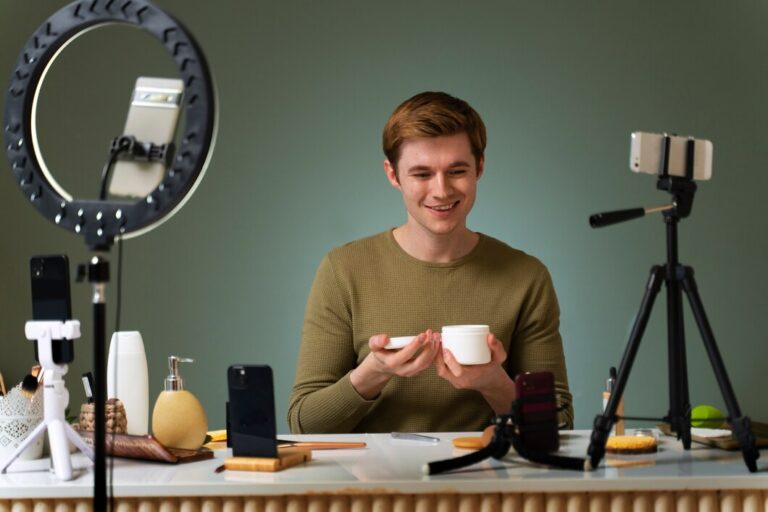
Why do some romantic relationships flourish with mutual respect, trust, and joy, while others become entangled in cycles of insecurity, conflict, and unmet needs? We often look to compatibility factors, communication styles, or shared goals. While important, there’s a foundational element frequently overlooked: self-love. It might sound cliché, the kind of advice splashed across self-help books, but the reality is profound. The way we relate to ourselves – the level of acceptance, compassion, and value we afford our own being – deeply dictates how we show up in partnership and plays a critical role in the health and success of our romantic bonds.
Perhaps you’ve felt it – the sting of jealousy that seems disproportionate, the constant need for reassurance, the fear of expressing your true needs, or the tendency to lose yourself completely in a relationship. These common struggles often whisper of a deeper issue: a deficit in self-love. This isn’t about blaming yourself, but about understanding a powerful dynamic. This guide explores The Role of Self-Love in Healthy Romantic Relationships.
We’ll unpack what self-love truly means in this context, how its absence can unintentionally sabotage intimacy, how its presence acts as a superpower for connection, and how cultivating it within yourself is one of the greatest gifts you can give to your partnership.
Beyond the Fairytale: What Self-Love Really Means for You

Let’s first dispel some myths. Self-love isn’t about vanity, selfishness, or narcissism. It’s not about believing you’re perfect or better than others. Rather, it’s a state of deep appreciation, acceptance, and kindness directed towards yourself, recognizing your inherent worthiness regardless of external circumstances or achievements .
In the context of relationships, self-love manifests as:
- Knowing Your Value: Understanding that you are deserving of respect, kindness, and fulfilling love, independent of your partner’s validation.
- Emotional Awareness: Recognizing and accepting your own feelings and needs without harsh judgment.
- Self-Responsibility: Taking ownership of your own happiness and well-being, rather than expecting your partner to be the sole source.
- Self-Care: Actively engaging in practices that nourish your physical, mental, and emotional health.
- Healthy Boundaries: Understanding and asserting your limits to protect your energy and well-being .
It’s about having a secure inner foundation. Think of it like ensuring your own oxygen mask is secure before assisting others; it’s not selfish, it’s essential for being able to show up healthily and sustainably for someone else.
When the Cup is Empty: How Lack of Self-Love Harms Partnerships

Without a solid foundation of self-love, we often enter or navigate relationships from a place of deficit, seeking external fulfillment for internal voids. This creates dynamics that, however unintentionally, can poison the partnership over time.
- Codependency: A lack of self-worth can lead to unhealthy emotional dependence, where your sense of identity and happiness becomes overly reliant on your partner and the relationship. You might feel you ‘need’ them to feel complete, blurring healthy boundaries.
- Insecurity and Jealousy: If you don’t truly believe you’re worthy of love, you may constantly doubt your partner’s feelings, fear rejection or abandonment, seek excessive reassurance, or become easily jealous, creating tension and mistrust.
- Poor Boundaries: Difficulty valuing your own needs can lead to an inability to set or maintain healthy boundaries. You might over-give, tolerate disrespect, or suppress your own desires to please your partner, leading to resentment.
- Communication Barriers: Fear of conflict or not feeling worthy of having your needs met can stifle open communication. You might avoid expressing true feelings or asking for what you need, leading to misunderstandings and unmet expectations.
- Projection: Insecurities can cause you to project your own fears and self-doubts onto your partner, misinterpreting their actions or words through a negative filter and reacting defensively.
- Losing Yourself: Without a strong sense of self, it can be easy to chameleonize, adopting your partner’s interests and opinions entirely and losing touch with your own identity within the relationship.
These patterns often create cycles of conflict, anxiety, and dissatisfaction, preventing the relationship from reaching its full potential for healthy, supportive connection.
Read More: Understanding Self-Worth: Influencing Relationship Success
The Self-Love Superpower: Fueling a Healthy, Resilient Relationship

Conversely, cultivating self-love acts like a superpower within a romantic relationship, fostering dynamics that promote health, resilience, and mutual growth. When you approach partnership from a place of inner wholeness, everything shifts.
Key Benefits:
- Healthy Interdependence: Self-love allows for interdependence – two whole, self-sufficient individuals choosing to share their lives and support each other – rather than codependence. You want your partner, but you don’t need them to feel complete.
- Increased Trust & Security: Feeling secure in your own worth reduces neediness and jealousy, fostering a climate of trust and allowing both partners more emotional freedom
- Improved Communication: Confidence enables you to express your needs, feelings, and boundaries clearly and respectfully. It also enhances your capacity for active, empathetic listening, as you’re less likely to take things personally.
- Effective Conflict Resolution: Self-love provides the emotional resilience to handle disagreements constructively, without feeling fundamentally threatened or resorting to blame or withdrawal.
- Authenticity & Intimacy: Being secure in yourself allows you to be more authentic and vulnerable, which are essential ingredients for deep emotional intimacy.
- Mutual Support & Growth: When you prioritize your own well-being, you model that for your partner and create space for both individuals to pursue personal growth alongside the relationship’s growth.
- Attracting & Maintaining Respect: Valuing yourself naturally leads you to expect and attract respectful treatment from a partner.
Self-love isn’t about building walls; it’s about building a solid foundation within yourself so you can connect with another from a place of strength, generosity, and authenticity.
Unplugged Connection: Self-Love, Presence & Reducing Digital Neediness

In our digitally saturated world, the journey of self-love and its role in relationships intersects significantly with how we use technology. A lack of inner validation can sometimes manifest as digital behaviors that strain connection, while practicing self-love often involves a degree of mindful disconnection.
Internal vs. External Validation: Low self-worth can fuel a need for constant external validation, often sought through digital means – obsessive checking for texts from a partner, seeking reassurance via social media couple posts, comparing your relationship to idealized online portrayals.
This digital neediness can create anxiety and take away from being present in the actual relationship. Cultivating self-love helps shift your source of worth inward, reducing reliance on digital affirmation from your partner or the online world.
Presence Over Pings: How often is quality time with a partner interrupted by phone notifications or the urge to scroll? Practicing self-love involves valuing your own well-being and the quality of your connections. This naturally encourages setting boundaries around technology during shared time – creating device-free meals, date nights, or even just conversations.
Being fully present with your partner: offering undivided attention, is a powerful act of love for both them and yourself, fostering deeper connection than fragmented, digitally-interrupted interactions allow.
Disconnecting from Comparison: Social media often presents unrealistic “relationship goals”. Mindfully limiting exposure to these curated portrayals helps protect your self-worth and prevents unhealthy comparison that can breed dissatisfaction with your own perfectly imperfect relationship. Self-love encourages appreciating your unique connection for what it is, offline and in reality.
Embracing moments of being “unplugged” together, focused solely on each other and the shared experience, is both an act of self-care and relationship nurturing.
Cultivating Your Inner Sanctuary: Practices to Nurture Self-Love

Nurturing self-love is an active, ongoing practice. It requires conscious effort to build new habits of thought and behavior. Here are some foundational practices:
- Mindfulness & Self-Awareness: Regularly practice tuning into your thoughts, feelings, and bodily sensations without judgment. Meditation, deep breathing, or simple mindful check-ins throughout the day build awareness of your inner state.
- Self-Compassion Practices: Intentionally treat yourself with kindness, especially when facing challenges or mistakes. Challenge your inner critic with compassionate responses. Acknowledge your shared humanity – everyone struggles.
- Identify & Honor Your Needs: Regularly ask yourself: What do I truly need right now (rest, connection, solitude, nourishment, stimulation)? Practice honoring those needs without guilt.
- Set & Maintain Healthy Boundaries: Practice saying ‘no’ to things that drain you and ‘yes’ to things that align with your values. Communicate your limits clearly and respectfully.
- Prioritize Self-Care: Consistently engage in activities that support your physical (sleep, nutrition, movement), mental (learning, rest), and emotional (joy, connection, expression) well-being.
- Challenge Negative Beliefs: Use journaling or self-reflection to identify and challenge limiting beliefs about yourself and your worthiness of love.
- Celebrate Strengths & Successes: Actively acknowledge your positive qualities, accomplishments, and efforts, no matter how small.
- Seek Support: Talk to trusted friends, family, or consider professional therapy to explore deeper patterns and gain support on your journey.
This isn’t about achieving perfection, but about consistently choosing actions and thoughts that affirm your inherent value.
The Role of Self-Love in Healthy Romantic Relationships: Weaving It Together

So, how does it all weave together? The Role of Self-Love in Healthy Romantic Relationships is foundational and multifaceted. It acts as the internal operating system influencing nearly every aspect of how we connect with a partner.
When you cultivate self-love, you bring your whole self to the relationship, not just the parts seeking validation or completion. You can communicate more authentically because you value your own voice. You can set boundaries more effectively because you respect your own needs. You can navigate conflict more resiliently because your core worth isn’t on the line. You can trust more deeply because you aren’t projecting your own insecurities. You can offer support more genuinely because you aren’t depleted from neglecting your own needs. You create space for healthy interdependence, where connection enhances, rather than defines, your sense of self.
Ultimately, loving yourself allows you to love another person more freely and fully. It shifts the dynamic from needing love to confirm your worth, to sharing love from a place of inherent worthiness. This creates a partnership that is less about filling gaps and more about mutual growth, respect, and shared joy.
Common Concerns & Solutions About Self-Love in Partnership

Focusing on self-love within the context of a relationship can bring up some valid questions.
Concern 1: “Isn’t focusing on my own needs and self-love selfish in a partnership?”
- Solution: Healthy self-love enables you to be a better partner. When your cup is full, you have more energy, patience, and authentic love to give. It prevents burnout and resentment from unmet needs. It fosters interdependence, which is healthier than selfless martyrdom or demanding codependence.
Concern 2: “What if I work on my self-love, but my partner doesn’t?”
- Solution: You can only control your own journey. As you change, the relationship dynamic will inevitably shift. Your increased self-worth might inspire your partner, or it might highlight incompatibilities. Focus on modeling healthy behavior, maintaining your boundaries, and communicating your needs. You cannot force their growth, but you can choose how you engage based on your own well-being.
Concern 3: “Do I have to fully love myself before I can be in a healthy relationship?”
- Solution: Not necessarily ‘fully’ – self-love is a lifelong practice. However, having a foundation of self-worth makes navigating relationships much healthier. You can certainly learn and grow within a relationship, especially if your partner is supportive. The key is being committed to your own growth journey alongside the partnership. Don’t wait for perfection, but do commit to the practice.
Concern 4: “How do I balance self-love with the compromises needed in a relationship?”
- Solution: Healthy compromise comes from a place of choice and mutual respect, not obligation or fear of loss. Self-love helps you discern the difference. You can compromise on preferences without compromising your core values or well-being. Knowing your needs and boundaries allows you to negotiate compromises that feel fair and sustainable, rather than consistently sacrificing yourself.
Practices for Nurturing Self-Love & Your Relationship Checklist

Integrate these practices to foster both self-love and a healthier connection with your partner:
- Schedule Solo Self-Care Time: Each partner commits to regular time for individual activities that recharge them (offline hobbies, exercise, quiet time).
- Practice Mindful Communication: Dedicate time for focused, device-free conversations where active listening and expressing needs respectfully are prioritized.
- Express Appreciation (Self & Partner): Regularly acknowledge positive qualities and efforts – both your own and your partner’s. Verbalize appreciation.
- Set Shared & Individual Boundaries: Discuss and agree on boundaries around time, energy, technology use, and interactions with others. Respect each other’s individual boundaries.
- Support Each Other’s Growth: Encourage and celebrate each other’s personal goals and self-care efforts, even those pursued independently.
- Practice Self-Compassion Together: Acknowledge when both of you are struggling. Offer mutual kindness and understanding instead of blame during difficult times.
- Engage in Shared Joyful Activities (Unplugged): Make time for fun, screen-free activities you both enjoy, focusing on connection and shared presence.
- Regular Relationship Check-ins: Create a safe space to periodically discuss how the relationship feels, what’s working well, and any unmet needs or concerns from both sides.
Uncover more knowledge: Self-Care & Conscious Relationships: Nurture Connection
Fill Your Cup, Deepen Your Love

The quest for a thriving romantic relationship often sends us looking outward – for the ‘right’ person, the ‘perfect’ circumstances. Yet, the role of self-love in healthy romantic relationships reveals that one of the most potent keys lies within. Cultivating a deep sense of your own worth, acceptance, and compassion isn’t a prerequisite you must perfect before finding love, but rather an ongoing practice that profoundly shapes the quality and resilience of the love you experience and share.
By understanding how self-love influences boundaries, communication, independence, and trust, you gain the power to consciously shift unhealthy patterns.
By embracing practices like mindfulness, self-compassion, and authentic self-care, you build the inner foundation necessary for a partnership based on mutual respect and genuine connection, rather than neediness or fear. You learn to fill your own cup, enabling you to share love freely and receive it fully.
Are you ready to invest in the most important relationship of all – the one with yourself – as a way to nurture the love you share with another? Start small. Choose one practice that resonates. Be patient. Be kind to yourself. As you cultivate your inner sanctuary of self-love, you’ll find it naturally radiates outward, transforming your connection with your partner and paving the way for a richer, deeper, more fulfilling shared journey.






